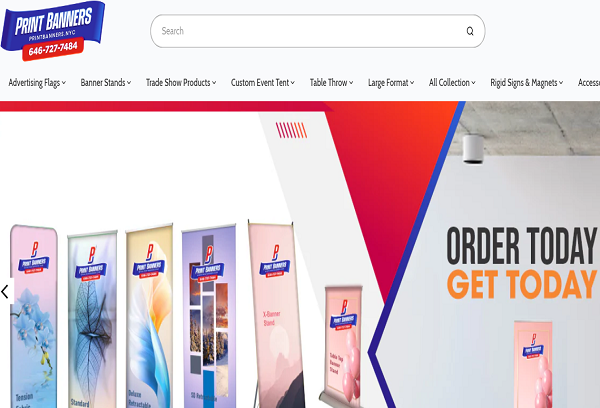Five Ways to Improve Your Site’s Ranking (SEO)
- January 21, 2025
- SEO
Improving your website’s SEO is essential for driving organic traffic and boosting your search engine rankings. Follow these five proven strategies to enhance your site’s SEO performance and climb to the top of search engine results pages (SERPs).
1. Set an SEO Optimization Strategy
Creating an effective SEO strategy is the foundation of improving your website’s search engine rankings. Here’s how you can get started:
Audit and Benchmark Your Site’s Performance
Conduct a thorough site audit to identify issues like broken links, slow page speeds, and mobile usability. Use tools such as Google Analytics, Search Console, and SEO software (e.g., Ahrefs, SEMrush) to track traffic, keyword rankings, and conversion rates. Establishing a performance benchmark helps you measure progress over time.
Competitor Analysis
Identify competitors by evaluating which websites rank for your target keywords. Analyze their content and backlinks to find new opportunities. This will also help you uncover content gaps that you can fill with unique, valuable information.
Keyword Research and Intent Mapping
Use tools like Google Keyword Planner, SEMrush, and Ahrefs to build a comprehensive list of target keywords. Focus on low-competition keywords that match user intent and create content around them. Organize your content into topic clusters to strengthen your site’s authority.
2. Publish Relevant, Authoritative Content
Content is king when it comes to SEO. Google rewards quality, informative content that satisfies user intent.
Target Keywords
Choose a primary keyword for each content page. Be mindful of how users are likely to search for your content. For example, if you’re targeting a page about engineering management, keywords like “online masters in engineering management” could be ideal.
Use Multiple Keyword Phrases
While it’s challenging to rank for several keyword phrases on one page, you can target variations of a core topic. If you’re writing about “biomedical engineering jobs,” you may also want to target related phrases like “biomedical engineering careers.”
Place Keywords Strategically
Ensure your keyword appears naturally in important elements like the URL, page title, and headings. Don’t over-optimize, as readability and user experience should always come first. The key is balance — using your keywords in the right places without disrupting the flow of your content.
Content Quality
Quality content should answer your audience’s questions and provide value. Go beyond basic information and offer your expertise, case studies, or actionable advice. It’s not just about meeting search engine guidelines; it’s about engaging your readers.
3. Update Your Content Regularly
Search engines favor fresh, updated content. Keep your content up to date by auditing your website on a regular schedule and making necessary revisions. Update outdated information, introduce new insights, and refresh links to ensure everything remains relevant.
Blogging
Start a blog to provide additional content on topics that matter to your audience. Regular blog posts allow you to target long-tail keywords and improve your overall SEO.
Metadata
Don’t forget to review and update your website’s metadata. Title and description tags help search engines and users understand the content of your pages. For example, the meta description should be concise and compelling to encourage clicks from search results.
4. Build a Link-Worthy Website
The more quality backlinks you earn, the higher your website will rank. Here’s how to make your site more link-worthy:
Create High-Quality, Shareable Content
Content that educates, entertains, or solves problems is more likely to earn backlinks. Produce content that is authoritative, unbiased, and offers real value to users.
Use Descriptive, Keyword-Rich Links
Instead of generic “click here” links, use descriptive anchor text. For example, link to “Michigan Tech Enterprise Program” rather than using “click here.” This not only helps with SEO but also makes your links more valuable to users and search engines.
Monitor Your SEO Rankings
Use tools like Google Search Console, Moz, or Bing Webmaster Tools to track your SEO rankings and performance. After several months, you should notice an increase in impressions, followed by more clicks and conversions.
5. Optimize for Mobile and Execute Technical SEO
In today’s mobile-first world, ensuring your site is mobile-responsive is crucial for SEO. Here’s how to optimize for both mobile and technical SEO:
Mobile Optimization
Make sure your website offers a seamless mobile experience. Test your site’s mobile-friendliness using tools like Google’s Lighthouse tool, and ensure all images and media are optimized for faster loading on mobile devices.
Technical SEO Best Practices
Work with developers to ensure your site follows technical SEO guidelines. This includes optimizing load speeds, reducing HTTP requests, compressing images, and using a clean URL structure. Schema markup can enhance rich snippets, improving visibility in search results.
By combining a solid SEO strategy with relevant content, regular updates, link-building efforts, and mobile optimization, your website will be better equipped to rise in search rankings and drive organic traffic
By following these proven strategies, you can position your website to rank higher in search engine results and attract your target audience effectively. For businesses looking to take their SEO efforts to the next level, Earn SEO specializes in delivering tailored SEO solutions designed to improve rankings, drive traffic, and achieve measurable results. Visit our website to learn more about how we can help optimize your online presence and achieve your goals.
Earn SEO was established in 2011 by Devendra Mishra, a highly educated professional with varied training and experience. Mr. Mishra is responsible for business development, attracting new Earn SEO partners, and interacting with clients, the media and press, and acting as Brand Ambassador.
Devendra Mishra
Founder






































